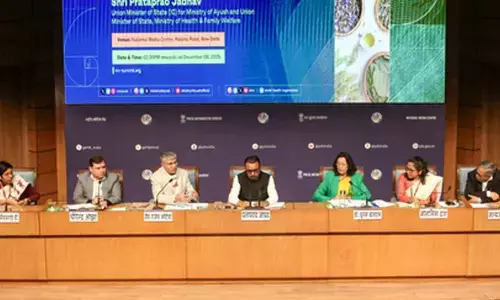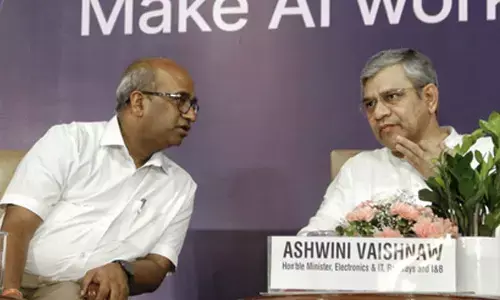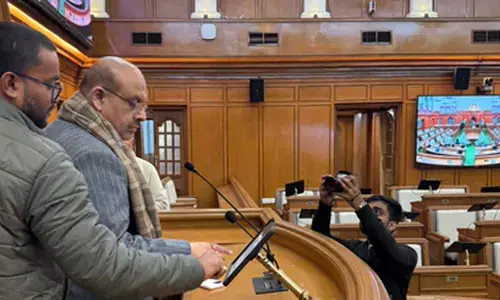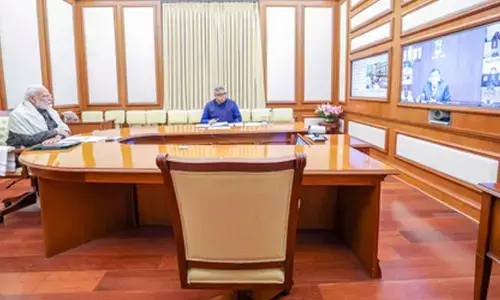Heavy tax on tobacco products a welcome move
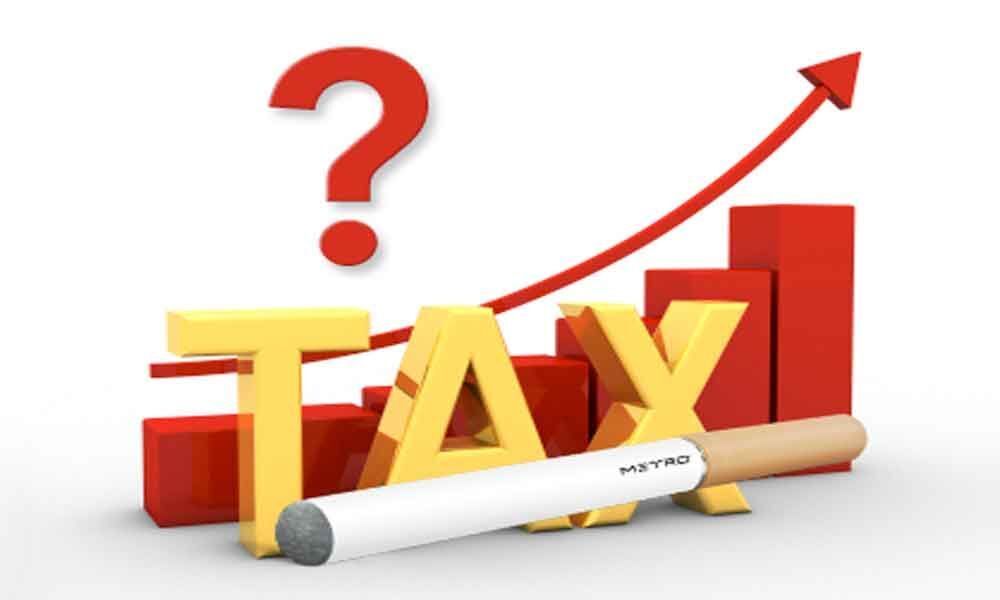
Doctors, economists and public health advocates across India has lauded the on-going efforts of the Indian government on tobacco taxation and have urged that such efforts need to be augmented to sustain the momentum to continue to achieve revenue and public health goals.
Hyderabad: Doctors, economists and public health advocates across India has lauded the on-going efforts of the Indian government on tobacco taxation and have urged that such efforts need to be augmented to sustain the momentum to continue to achieve revenue and public health goals. All of them have welcomed the Finance Minister's decision to levy excise duty on all tobacco products in the annual budget 2019-20.
The Finance Minister, Nirmala Sitharaman, while presenting the Annual Budget 2019-20 in Parliament, stated that "Tobacco products and crude attract National Calamity and Contingent duty. In certain cases, this levy has been contested on the ground that there is no basic excise duty on these items. To address this issue, a nominal basic excise duty is being imposed."Excise duty of Rs5 per 1,000 stick will be levied on all tiers of cigarettes. On cigarettes above 75mm, the excise duty will be Rs10 per 1,000 sticks. On man-made bidis, it will be 5 paisa per 1,000 sticks and on machine made bidis, it will be 10 paisa per 1,000 sticks. For most smokeless the rate will be 0.5% rate
The FM was applauded for bringing back excise duty on cigarettes, bidis and smokeless tobacco. Levying excise duty on all tobacco products and retaining these in the highest tax slab in GST, will ensure tobacco products do not become more affordable. This will provide a solid foundation for reducing tobacco usage among vulnerable populations and have long-lasting impact on the lives of the country's 268 million tobacco users.
"I would like to congratulate the finance Minister Nirmala Sitharaman on imposing excise duty on tobacco products. Even though this being a nominal increase, it sends a right message that the government is serious about reducing tobacco consumption by making them less affordable. The WHO recommends that total tax burden on all tobacco products should be about 75% of retail price. Therefore, there is still enough room to increase taxes on any tobacco products in India to reach the recommended rates by the WHO," Bhavna B Mukhopadhyay, Chief Executive, Voluntary Health Association of India.
Most of the GST compensation cess on cigarettes is specific in nature and had not been revised for the past two years. This has significantly eroded the real value of tax and has made cigarettes, bidis and smokeless tobacco products highly affordable, threatening to undermine the progress in reduction of prevalence of tobacco consumption in India.
"Government should bring uniform taxes on all bidis just like cigarettes and to remove exemptions given to less than 2 million units and hand rolled bidis," Dr K Srikanth, Secretary, Indian Dental Association.
"The reintroduction of central excise duties on tobacco products in the union budget, although at a very nominal rate, is definitely a welcome development on tobacco taxation under the existing GST regime. This will pave the way for replacing compensation cess on these products under the GST as they expire in the coming three years. Hopefully, the government will revise these duties periodically to keep the affordability of tobacco products under check as the GST rates on these products remain fixed," Dr Rijo John, Economist and Health Policy Analyst.
Refuting the industry claims that tobacco farmers suffering due to tax increase as being unfounded and highly misleading, these public health organisations and physicians have said that if the industry is genuinely representing farmers' interests, they should be ready to part with a higher share of their profit margins to farmers instead of exploiting them and increasing its own profits. They further said that it is well known that most tobacco farmers are caught in a vicious cycle to debt by the organised tobacco industry through long term loans with high interest rates.
Tobacco kills more than 1.3 million people each year in India (home to the second greatest number of smokers in the world behind China). Additionally, tens of millions use deadly smokeless tobacco products. These are harsh realities and there is nothing positive about tobacco consumption. In fact, approximately 130 million people of age 15 and older in India currently smoke and roughly half of all adults are exposed to second-hand smoke at home.








